Books
Antiquity. Arts + Culture. Entertainment. Philosophy + Religion. And more!
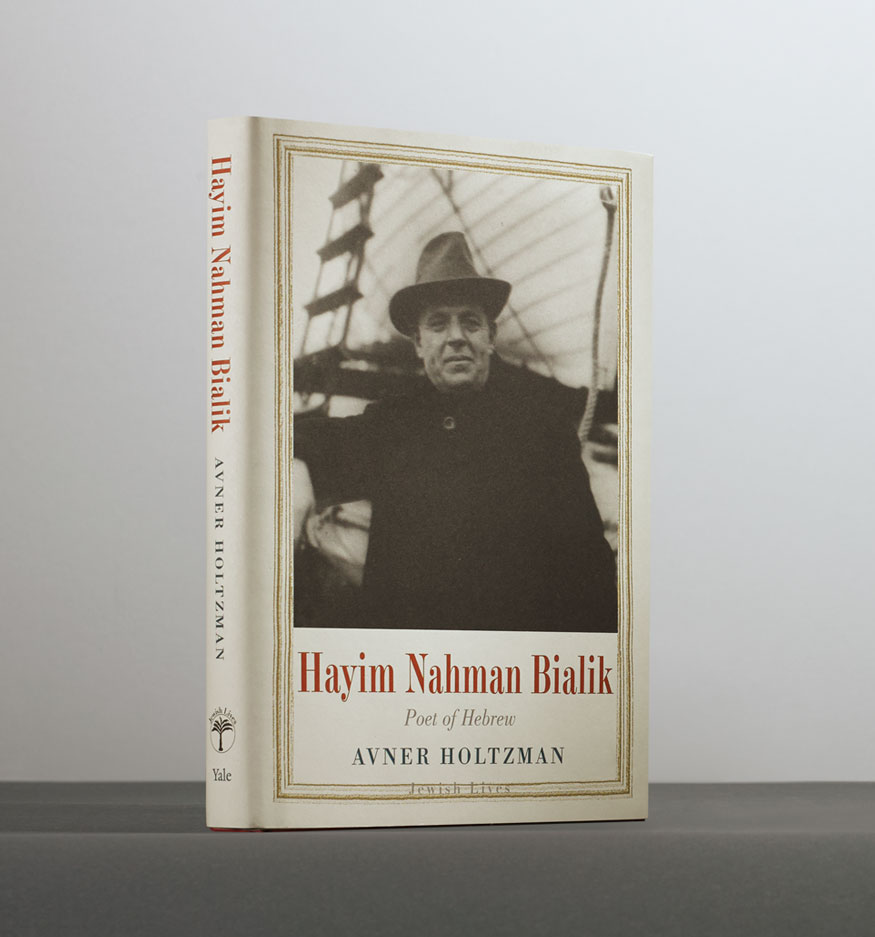
By Avner Holtzman
Published February 21, 2017
264 pages
“A remarkable story, superbly told” —David G. Roskies
A moving inquiry into the dramatic life, epic success, and ultimate tragedy of the great Hebrew poet
By the time he was twenty-eight, Hayim Nahman Bialik was already considered the National Hebrew Poet. He had only published a single collection, but his deeply personal poetry established a profound link between the secular and the traditional that would become paramount to a national Jewish identity in the twentieth century. When he died unexpectedly in 1934, the outpouring of grief was unprecedented, confirming him as a father figure for the Zionist movement in Palestine, and around the world.
Using extensive research and elegant readings of Bialik’s poems, Avner Holtzman investigates the poet’s dramatic life, complex personality, beloved verse, and continued popularity. This clear-eyed and thorough biography explores how Bialik overcame intense personal struggles to become a charismatic literary leader at the core of modern Hebrew culture.
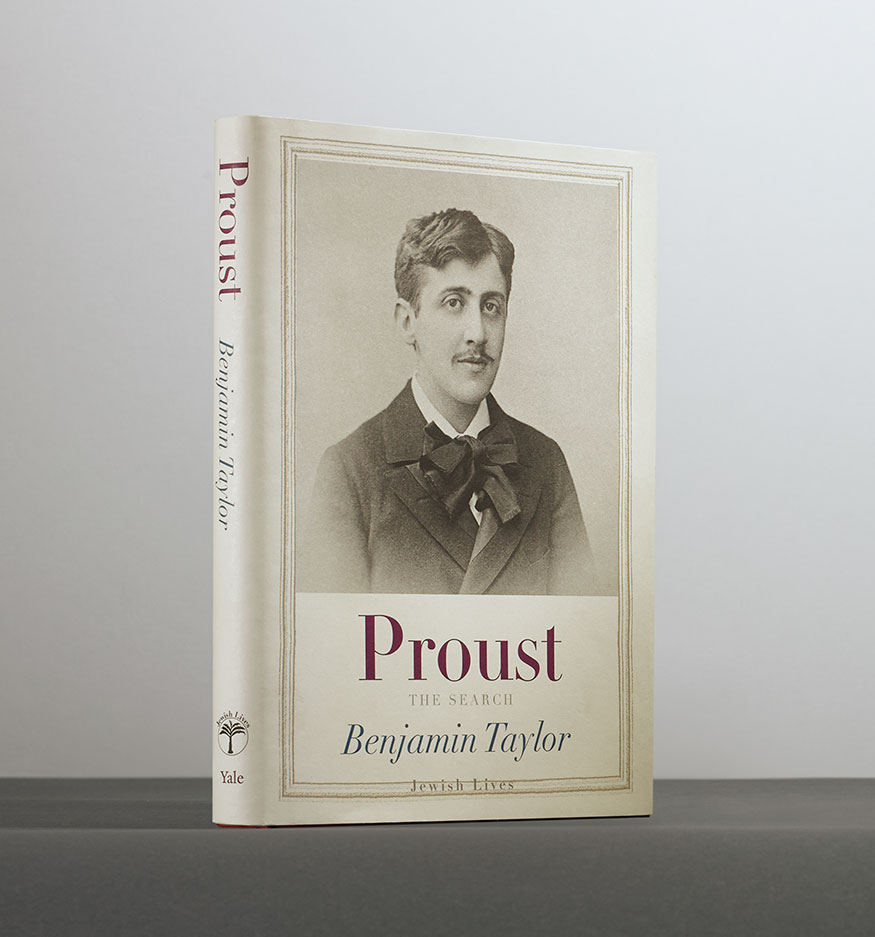
By Benjamin Taylor
Published October 27, 2015
224 pages
“A marvel of brief biography” —The New York Times Book Review
An arresting new study of the life, times, and achievement of one of the most influential writers of the twentieth century
“Taylor’s endeavor is not to explain the life by the novel or the novel by the life but to show how different events, different emotional upheavals, fired Proust’s imagination and, albeit sometimes completely transformed, appeared in his work. The result is a very subtle, thought-provoking book.” —Anka Muhlstein, author of Balzac’s Omelette and Monsieur Proust’s Library
Marcel Proust came into his own as a novelist comparatively late in life, yet only Shakespeare, Balzac, Dickens, Tolstoy, and Dostoyevsky were his equals when it came to creating characters as memorably human. As biographer Benjamin Taylor suggests, Proust was a literary lightweight before writing his multivolume masterwork In Search of Lost Time, but following a series of momentous historical and personal events, he became—against all expectations—one of the greatest writers of his, and indeed any, era.
This insightful, beautifully written biography examines Proust’s artistic struggles—the “search” of the subtitle—and stunning metamorphosis in the context of his times. Taylor provides an in-depth study of the author’s life while exploring how Proust’s personal correspondence and published works were greatly informed by his mother’s Judaism, his homosexuality, and such dramatic events as the Dreyfus Affair and, above all, World War I. As Taylor writes in his prologue, “Proust’s Search is the most encyclopedic of novels, encompassing the essentials of human nature. . . . His account, running from the early years of the Third Republic to the aftermath of World War I, becomes the inclusive story of all lives, a colossal mimesis. To read the entire Search is to find oneself transfigured and victorious at journey’s end, at home in time and in eternity too.”

By Berel Lang
Published November 26, 2013
192 pages
“A fresh vision” —Jewish Book Council
In 1943, twenty-four-year-old Primo Levi had just begun a career in chemistry when, after joining a partisan group, he was captured by the Italian Fascist Militia and deported to Auschwitz. Of the 650 Italian Jews in his transport, he was one of fewer than 25 who survived the eleven months before the camp’s liberation. Upon returning to his native Turin, Levi resumed work as a chemist and was employed for thirty years by a company specializing in paints and other chemical coatings. Yet soon after his return to Turin, he also began writing—memoirs, essays, novels, short stories, poetry—and it is for this work that he has won international recognition. His first book, If This Is a Man, issued in 1947 after great difficulty in finding a publisher, remains a landmark document of the twentieth century.
Berel Lang's groundbreaking biography shines new light on Levi’s role as a major intellectual and literary figure—an important Holocaust writer and witness but also an innovative moral thinker in whom his two roles as chemist and writer converged, providing the “matter” of his life. Levi’s writing combined a scientist’s attentiveness to structure and detail, an ironic imagination that found in all nature an ingenuity at once inviting and evasive, and a powerful and passionate moral imagination. Lang’s approach provides a philosophically acute and nuanced analysis of Levi as thinker, witness, writer, and scientific detective.
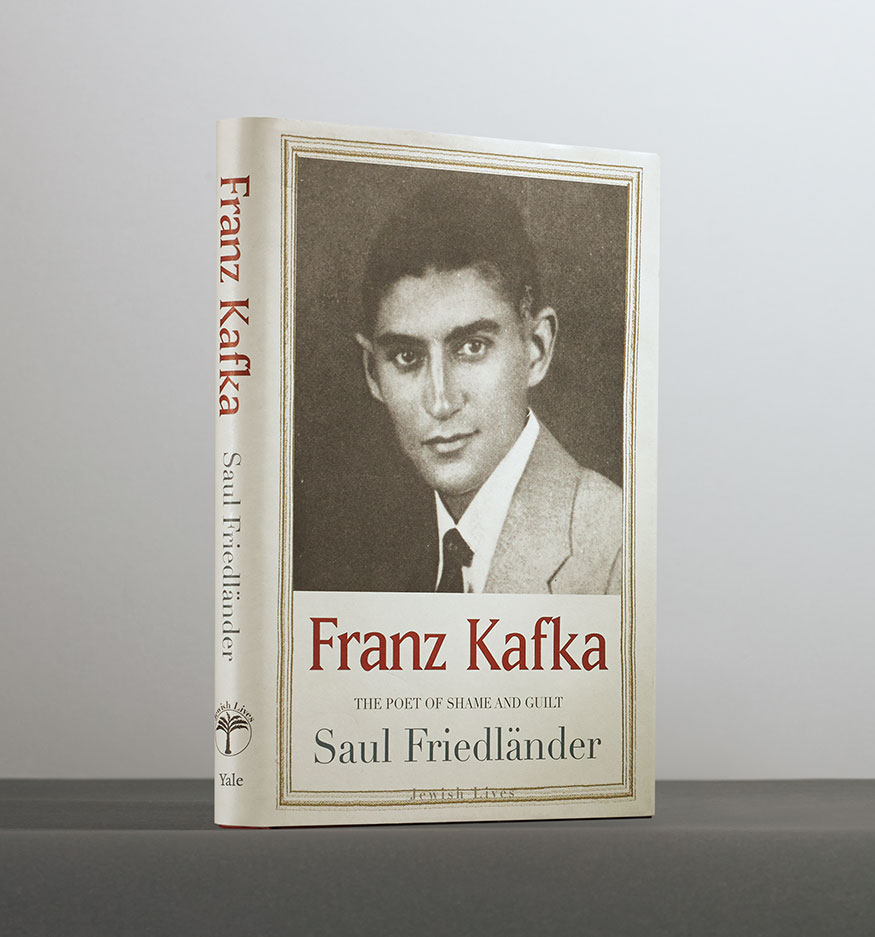
By Saul Friedländer
Published April 16, 2013
200 pages
“Stimulating” —The Jewish Ledger
A highly original and engaging appraisal of Kafka’s life, work, legacy, and thought
Franz Kafka was the poet of his own disorder. Throughout his life he struggled with a pervasive sense of shame and guilt that left traces in his daily existence—in his many letters, in his extensive diaries, and especially in his fiction. This stimulating book investigates some of the sources of Kafka’s personal anguish and its complex reflections in his imaginary world.
In his query, Saul Friedländer probes major aspects of Kafka’s life (family, Judaism, love and sex, writing, illness, and despair) that until now have been skewed by posthumous censorship. Contrary to Kafka’s dying request that all his papers be burned, Max Brod, Kafka’s closest friend and literary executor, edited and published the author’s novels and other works soon after his death in 1924. Friedländer shows that, when reinserted in Kafka’s letters and diaries, deleted segments lift the mask of “sainthood” frequently attached to the writer and thus restore previously hidden aspects of his individuality.
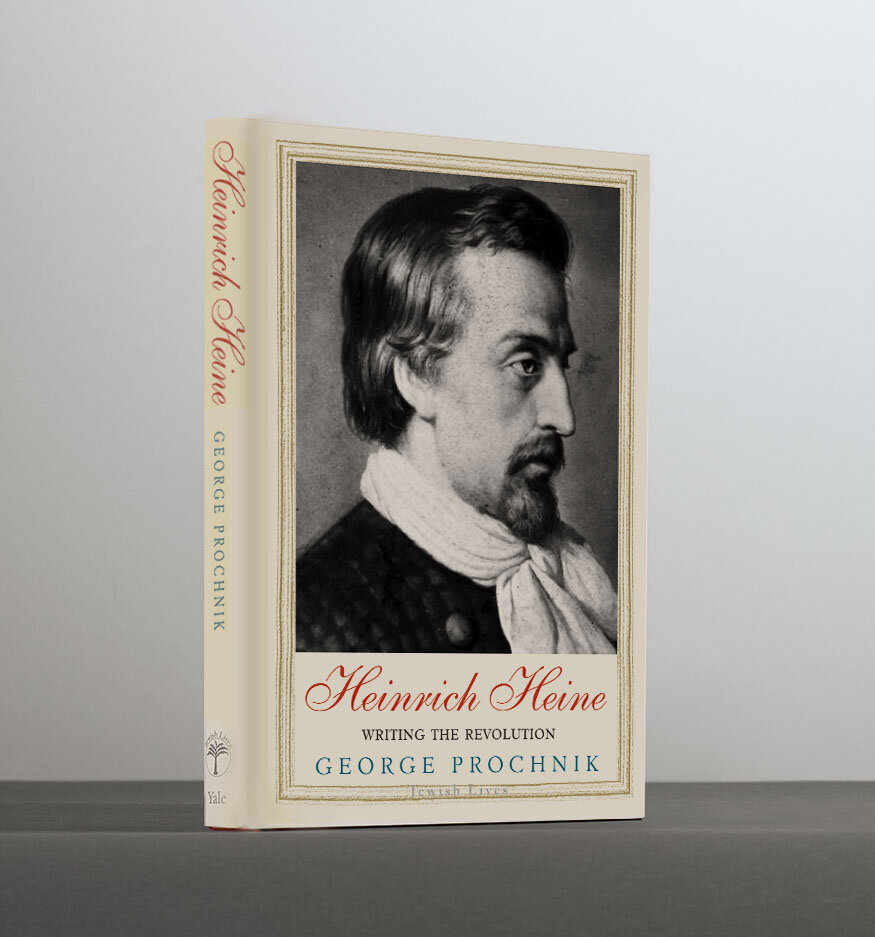
By George Prochnik
Published November 24, 2020
336 pages
“Splendid” —David Biale
A thematically rich, provocative, and lyrical study of one of Germany’s most important, world-famous, and imaginative writers
Heinrich Heine (1797–1856) was a virtuoso German poet, satirist, and visionary humanist whose dynamic life story and strikingly original writing are ripe for rediscovery.
In this vividly imagined exploration of Heine’s life and work, George Prochnik contextualizes Heine’s biography within the different revolutionary political, literary, and philosophical movements of his age. He also explores the insights Heine offers contemporary readers into issues of social justice, exile, and the role of art in nurturing a more equitable society.
Heine wrote that in his youth he resembled “a large newspaper of which the upper half contained the present, each day with its news and debates, while in the lower half, in a succession of dreams, the poetic past was recorded fantastically like a series of feuilletons.”
This book explores the many dualities of Heine’s nature, bringing to life a fully dimensional character while also casting into sharp relief the reasons his writing and personal story matter urgently today.

By John Lahr
Published November 1, 2022
264 pages
“A great introduction to a giant of American letters” —Publishers Weekly
A great theater critic brings twentieth-century playwright Arthur Miller’s dramatic story to life with bold and revealing new insights
Distinguished theater critic John Lahr brings unique perspective to the life of Arthur Miller (1915–2005), the playwright who almost single-handedly propelled twentieth-century American theater into a new level of cultural sophistication. Organized around the fault lines of Miller’s life—his family, the Great Depression, the rise of fascism, Elia Kazan and the House Committee on Un-American Activities, Marilyn Monroe, Vietnam, and the rise and fall of Miller’s role as a public intellectual—this book demonstrates the synergy between Arthur Miller’s psychology and his plays. Concentrating largely on Miller’s most prolific decades of the 1940s, 1950s, and 1960s, Lahr probes Miller’s early playwriting failures; his work writing radio plays during World War II after being rejected for military service; his only novel, Focus; and his succession of award-winning and canonical plays that include All My Sons, Death of a Salesman, and The Crucible, providing an original interpretation of Miller’s work and his personality.

By Joseph Berger
Published May 23, 2023
360 pages
“Moving” —Cynthia Ozick
An intimate look at Elie Wiesel, author of the seminal Holocaust memoir Night and recipient of the Nobel Peace Prize
As an orphaned survivor and witness to the horrors of Auschwitz, Elie Wiesel (1928–2016) compelled the world to confront the Holocaust with his searing memoir Night. How did this soft-spoken man from a small Carpathian town become such an influential figure on the world stage? Drawing on Wiesel’s prodigious literary output and interviews with his family, friends, scholars, and critics, Joseph Berger seeks to answer this question.
Berger explores Wiesel’s Hasidic childhood in Sighet, his postwar years spent rebuilding his life from the ashes in France, his transformation into a Parisian intellectual, his failed attempts at romance, his years scraping together a living in America as a journalist, his decision to marry and have a child, his emergence as a spokesperson for Holocaust survivors and persecuted peoples throughout the world, his lifelong devotion to the state of Israel, and his difficult final years. Through this penetrating portrait we come to know intimately the man the Norwegian Nobel Committee called “a messenger to mankind.”

By Rachel Shteir
Published September 12, 2023
384 pages
“A lucid portrait” —Publishers Weekly
A new portrait of Betty Friedan, the author and activist acclaimed as the mother of second-wave feminism
The feminist writer and activist Betty Friedan (1921–2006), pathbreaking author of The Feminine Mystique, was powerful and polarizing. In this biography, the first in more than twenty years, Rachel Shteir draws on Friedan’s papers and on interviews with family, colleagues, and friends to create a nuanced portrait.
Friedan, born Bettye Naomi Goldstein, chafed at society’s restrictions from a young age. As a journalist she covered racism, sexism, labor, class inequality, and anti-Semitism. As a wife and mother, she struggled to balance her work and homemaking. Her malaise as a housewife and her research into the feelings of other women resulted in The Feminine Mystique (1963), which made her a celebrity.
Using her influence, Friedan cofounded the National Organization for Women, the National Women’s Political Caucus, and the National Association to Repeal Abortion Laws. She fought for the Equal Rights Amendment, universal childcare, and workplace protections for mothers, but she disagreed with the women’s liberation movement over “sexual politics.” Her volatility and public conflicts fractured key relationships.

By Robert Alter
Published September 26, 2023
200 pages
“A worthy introduction to Oz” —Publishers Weekly
An intimate portrait illuminating the life and work of Amos Oz, the award-winning Israeli writer and activist
Amos Oz (1939–2018) was one of Israel’s most prolific and prominent writers, as well as a regular contender for the Nobel Prize for Literature. He was the author of dozens of novels, essay collections, and novellas written between 1965 and shortly before his death.
In this first published biography of Oz, the celebrated translator, literary critic, and biblical scholar Robert Alter explores Oz’s relationship with his family, beginning with the suicide of his mother, Fania Klausner, when he was twelve years old, and goes on to review his time in Kibbutz Hulda, which he entered at fourteen following his separation from his father, Arieh Klausner; his family’s right-wing Zionism; his writing career; his activism in support of a pluralistic Israel; and his work as an international lecturer.
In examining Oz’s life and work, Alter brings together testimony from Oz and his circle, as well as close readings of his central works, to present the inner world and public persona of Amos Oz.
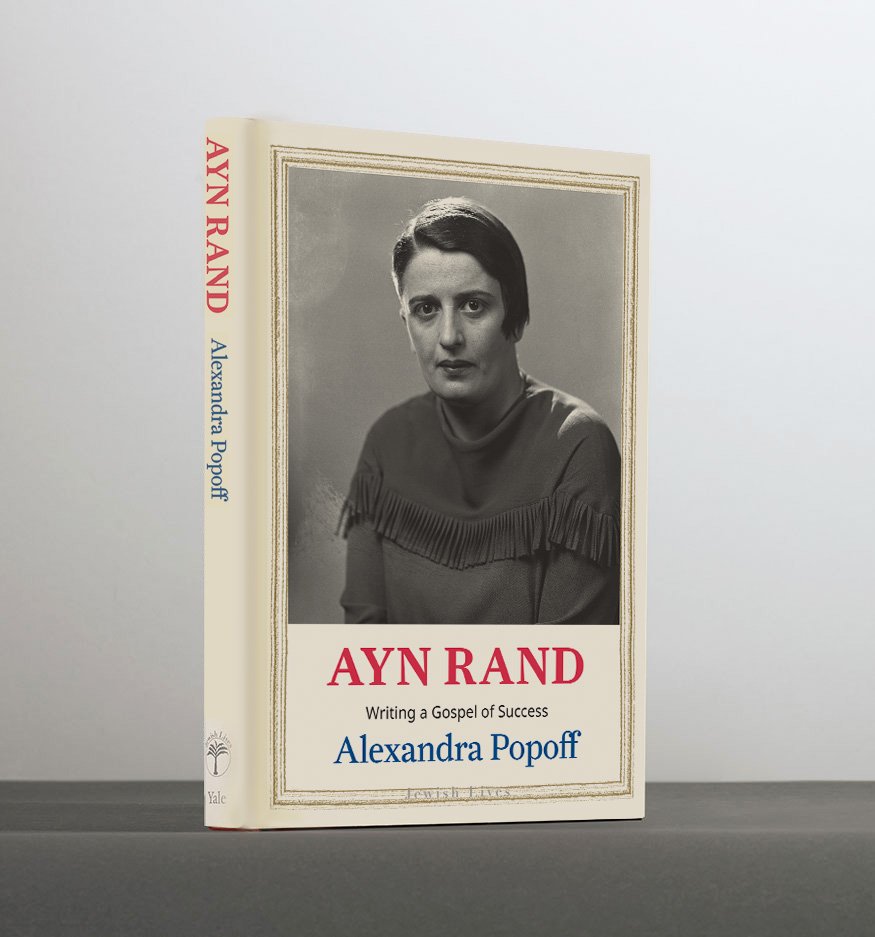
By Alexandra Popoff
Published August 6, 2024
264 pages
“Compelling” —Joshua Rubenstein
A deeply researched biography of the prominent and divisive writer Ayn Rand, whose pro-capitalist novels and nonfiction have influenced three generations of Americans
Biographer Alexandra Popoff traces the life and creative achievement of Ayn Rand (1905–1982), one of America’s most provocative writers and whose best-selling novels The Fountainhead and Atlas Shrugged have enjoyed impressive longevity. Born into a Jewish family in Saint Petersburg, Russia, Rand (then Alisa Rosenbaum) lived through the 1917 Bolshevik Revolution, Civil War, and the onset of Soviet totalitarian dictatorships––experiences that made her profoundly anticommunist. When in 1926 Rand escaped from Stalinist Russia to realize her talent in America, she was also determined to expose the Communist system.
Through her apprenticeship in Hollywood, where she worked as a scriptwriter, to her first anti-Communist novel, We the Living, Rand doggedly pursued her goal, battling the Soviet belief system, along with its precepts of collectivism and statism. She defended American capitalism, individualism, prosperity, and creativity; her literary heroes were talented high achievers. While Marx had declared war on capitalism and prophesied the triumph of the proletariat, Rand, whose family was dispossessed by the Bolsheviks, glorified the wealth-creator and held the masses in contempt. In Atlas Shrugged, her most controversial novel, she promoted laissez-faire capitalism and the morality of rational self-interest. She envisaged apocalypse in America if it followed the socialist path.
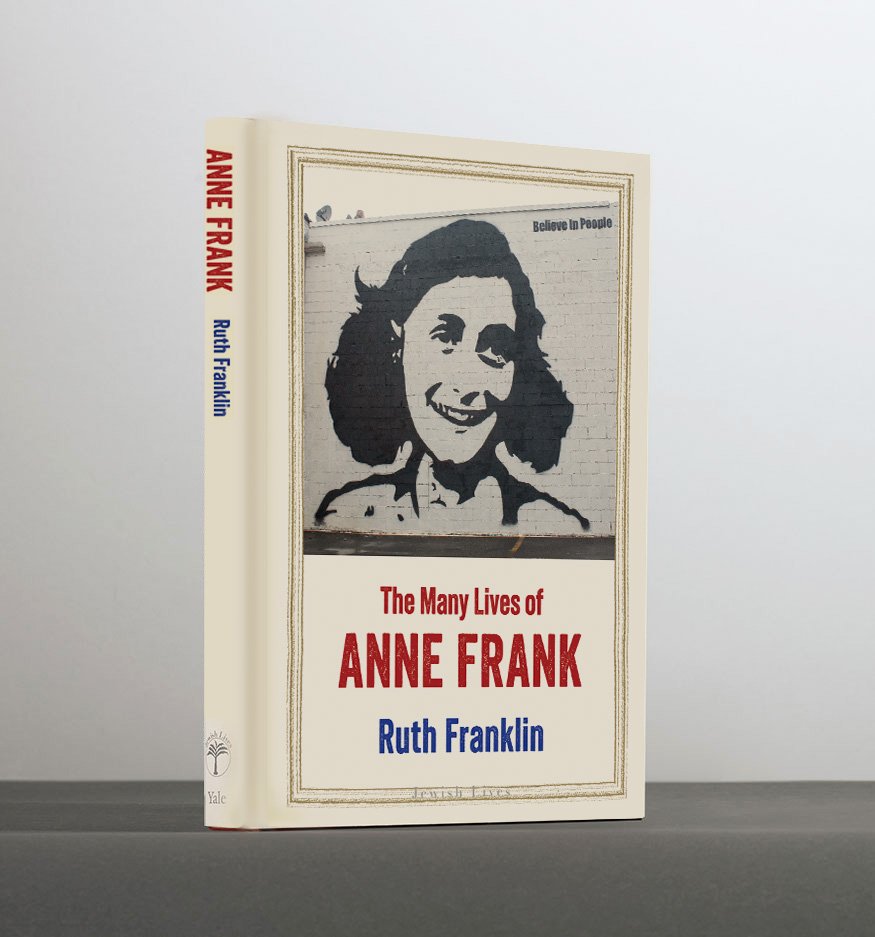
By Ruth Franklin
Published January 27, 2025
440 pages
"An essential look at the diarist’s legacy” —Publishers Weekly (starred review)
A revealing biography of Anne Frank, exploring both her life and the impact of her extraordinary diary
In this innovative biography, Ruth Franklin explores the transformation of Anne Frank (1929–1945) from ordinary teenager to icon, shedding new light on the young woman whose diary of her years in hiding, now translated into more than seventy languages, is the most widely read work of literature to arise from the Holocaust.
Comprehensively researched but experimental in spirit, this book chronicles and interprets Anne’s life as a Jew in Amsterdam during World War II while also telling the story of the diary—its multiple drafts, its discovery, its reception, and its message for today’s world. Writing alongside Anne rather than over her, Franklin explores the day-to-day perils of the Holocaust in the Netherlands as well as Anne’s ultimate fate, restoring her humanity and agency in all their messiness, heroism, and complexity.
With antisemitism once again in the news, The Many Lives of Anne Frank takes a fresh and timely look at the debates around Anne’s life and work, including the controversial adaptations of the diary, Anne’s evolution as a fictional character, and the ways her story and image have been politically exploited. Franklin reveals how Anne has been understood and misunderstood, both as a person and as an idea, and opens up new avenues for interpreting her life and writing in today’s hyperpolarized world.